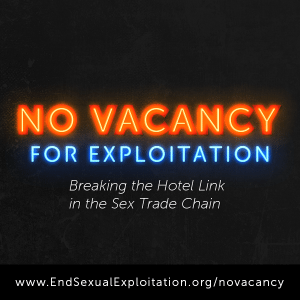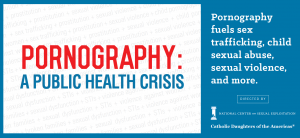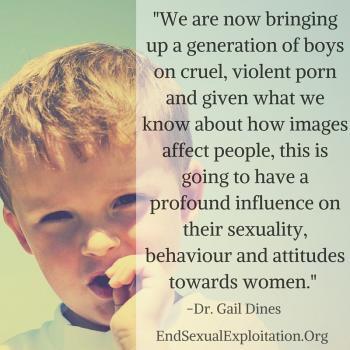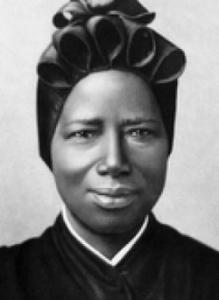
photo: Saint Josephine Bakhita has become known as the patron of human trafficking victims
International Day of Prayer and Awareness against Human Trafficking
The Pontifical Council for Justice and Peace and the International Union of Superiors General have designated February 8 as an annual day of prayer and awareness against human trafficking.
February 8 is the feast day of St. Josephine Bakhita, who was kidnapped as a child and sold into slavery in in her native Sudan. She was sold a total of five times and was tortured by various owners who branded her, beat and cut her. In her biography she notes one particularly terrifying moment when one of her masters cut her 114 times and poured salt in her wounds to ensure that the scars remained. “I felt I was going to die any moment, especially when they rubbed me in with the salt,” Bakhita wrote.
After Josephine was freed, she became a Canossian nun and dedicated her life to sharing her testament of deliverance from slavery and comforting the poor and suffering. She was declared a Saint in 2000 by Pope John Paul II, and is now known as the patron saint of victims of trafficking.
Approximately 17,000 vulnerable men, women and children are trafficked across our borders and then forced into slavery each year. Many have fled terrible situations in their home countries, and come to the United States to find a better life. Unfortunately, the nightmare often begins when they arrive.
For over a decade, the United States Conference of Catholic Bishops (USCCB) has been a national leader in advocacy and education to eradicate sex and labor trafficking. Migration and Refugee Services (MRS) leads efforts to combat trafficking in human persons, carrying out the commitment of the U.S. Bishops’ Committee on Migration to protect the life and dignity of the most vulnerable. Initiatives include advocacy, awareness raising, training and technical assistance, and integration services.
One worthy program is the USCCB/MRS-Anti-Trafficking program, working in conjunction with Department of Health & Human Services’ (HHS) Office of Trafficking in Persons, which is providing comprehensive case management through a network of direct service providers, to foreign born victims of trafficking and derivative family members as part of the Trafficking Victims Assistance Program.
Catholics all over the world are encouraged to hold or attend prayer services to create greater awareness about this ongoing tragedy. In the words of the committee chairman for migration, Bishop Eusebio Elizondo, M.Sp.S.: “If just one person realizes from this day that they or someone they know is being trafficked, we will have made a difference.”
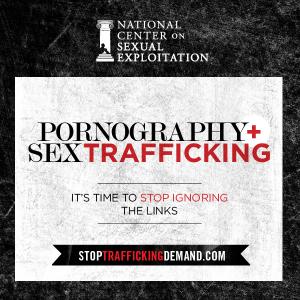
Ways you can participate:
If you suspect someone is a victim of human trafficking, take the following actions:
: Ask the person if you can help him/her find a safe place to go immediately.
- If the person needs time, create an action plan with him/her to get to a safe place when he/she is ready.
- Call and make a report to the human trafficking hotline at 1.888.373.7888. The hotline has language capabilities, so any individual can call directly.
- If you need more guidance, you can call and talk through the case with USCCB Anti-trafficking program staff at 202.541.3357.
Pray the Human Trafficking Stations of the Cross
The Stations of the Cross began as the practice of pious pilgrims to Jerusalem who would retrace the final journey of Jesus Christ to Calvary. Later, for the many who wanted to pass along the same route, but could not make the trip to Jerusalem, a practice developed that eventually took the form of the fourteen stations currently found in almost every church. The Human Trafficking Stations of the Cross is a resource for you to meditate on the human rights violation of trafficking and its parallels to His suffering on his last day. Through these meditations and prayers, we remember all of those who are trafficked into modern day slavery and suffer at the hands of their captors. Downloads of the stations are available
Be an ethical consumer and employer Pray the Human Trafficking Stations of the Cross
Find out how your actions can contribute to or reduce the demand for human trafficking. Websites like www.EndSexualExploitation.org give practical suggestions. For example, travelers are encouraged to choose to stay only in hotels that have been trained to look for the signs of sex trafficking occurring in their hotel rooms, and which refuse to profit from in-room pornographic movies, a major contributor to sexual exploitation.
Warning signs that an individual is being trafficked:
- Signs of physical abuse such as burn marks, bruises or cuts
- Unexplained absences from class
- Less appropriately dressed than before
- Sexualized behavior
- Overly tired in class
- Withdrawn, depressed, distracted or checked out
- Brags about making or having lots of money
- Displays expensive clothes, accessories or shoes
- New tattoo (tattoos are often used by pimps as a way to brand victims. Tattoos of a name, symbol of money or barcode could indicate trafficking)
- Older boyfriend or new friends with a different lifestyle
- Talks about wild parties or invites other students to attend parties
- Shows signs of gang affiliation? (ie: a preference for specific colors, notebook doodles of gang symbols, etc.)
“Our awareness must expand and extend to the very depths of this evil and its farthest reaches … from awareness to prayer … from prayer to solidarity … and from solidarity to concerted action, until slavery and trafficking are no more.” -Cardinal Peter Turkson

